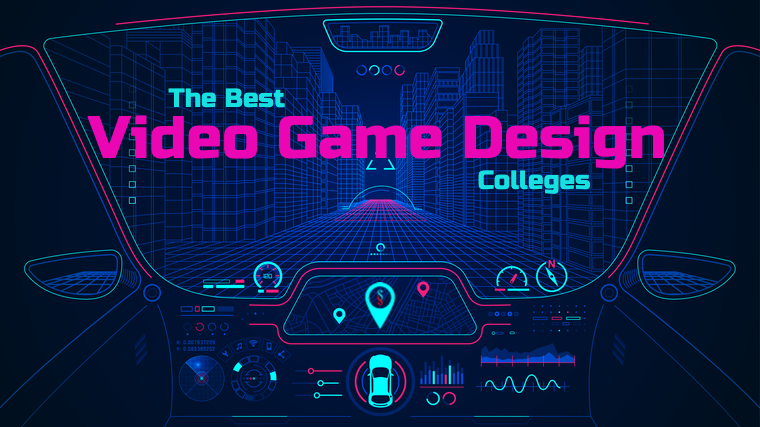This is a ranking of the best video game design colleges in the U.S. These gaming colleges include undergraduate and graduate programs.
Our ranking is designed for prospective students, parents, guidance counselors, and others to be informed of the top schools offering game design programs.
There are associate's degrees to PhDs offered at colleges for students who want to learn about video game creation. For more specific degree information, see our article What is a Game Design Degree?
These schools offer residential (on-campus) and/or online degrees of all varieties, including game design, art, and game development. Some are concentrations within Computer Science and others within Information Technology degrees.
Some degrees teach students how to develop games for commercial gaming, while others teach students how to create gamified experiences for business purposes, such as training, or for healthcare and other uses.
According to Statista, the worldwide commercial gaming industry is set to grow 9.3% by 2028, and be worth 389.7 billion. Video Games may be the largest entertainment industry in the world.
For accelerated game design programs, see our article The Fastest Online Game Design Degrees: Bachelor's Programs. Online students can graduate with a bachelor's in game design in two years.
Game Designer salary information is at the end of this article.
The Best Video Game Design Colleges
Ranking Methodology:
Factors that went into the ranking: academic influence, cost, career prospects in the gaming industry, cutting edge game design instruction, and a track record of graduates making an impact in commercial video games.
Colleges and universities may download our badge.
University of Southern California
School of Cinematic Arts
Los Angeles, California

USC is a leading university in many subjects, including Game Design and Game Art.
The USC School of Cinematic offers game design programs through their Interactive Media & Games Division.
Bachelor's Degrees
- Bachelor of Fine Arts in Game Art
- Bachelor of Fine Arts in Game Development and Interactive Design
Both degrees require 128 units (56 units within the major).
The Bachelor of Fine Arts in Game Art teaches game industry skills and proficiencies, with a foundation in liberal arts. Concentrations can include:
- Character Animation
- 3-D pipelines
- Environmental Design
- Interactive Animation
- Visual Effects
Required Courses include:
- 3D Modeling for Games
- Digital Media Workshop
- Game Design Workshop
- Intermediate Character Animation for Games
The Bachelor of Fine Arts in Game Development and Interactive Design teaches students a liberal arts foundation with industry-specific technical skills.
Required courses include:
- Game Development Fundamentals
- Advanced Games Crew
- Game Design Workshop
- Business and Management of Games
Master's degrees:
- Master of Arts in Cinematic Arts (Media Arts, Games and Health)
- Master of Science in Game Design and Development
- Master of Fine Arts in Interactive Media & Games
- Master of Fine Arts in Interactive Media (Games and Health)
In addition to these degrees, USC offers these undergrad Minors:
- Game Animation
- Game User Research
- Game Design
- Game Audio
- Game Studies
- Game Entrepreneurism
Students have the unique opportunity to network with peers at any level within these programs. This makes the hands-on experience and project development more than just class work, it is also a chance for team building and developing leadership skills.
University of Utah
Utah Division of Games
Salt Lake City, Utah

University of Utah's game design program's diverse faculty has expertise in every part of game creation.
University of Utah offers the Bachelor of Science in Games program.
Required courses include:
- Traditional Game Development
- Ethics in Games
- Alternative Game Development
Students must complete a Capstone project. Students also take 30 credit hours of electives, and 12 hours of Allied Hours (courses that are aligned with areas of interest).
Allied Hours can include the following classes:
- Digital Storytelling
- Lit, Film, Videogame
- Entrepreneurial Marketing
- Intro to Animation Techniques
Students learn computation, mathematics, and fundamental principles of design and production of games that can be used in a variety of settings; including scientific collaboration, business training, entertainment, and games designed for learning with children.
The University offers the Master of Entertainment Arts and Engineering program for graduate students.
There are five specialty options:
- Game Engineering
- Game Design
- Technical Art
- Game Production
- Game Arts
Students stay together as a cohort throughout the duration of this two year program.
Rensselaer Polytechnic Institute
The School of Humanities, Arts, and Social Sciences
Troy, New York
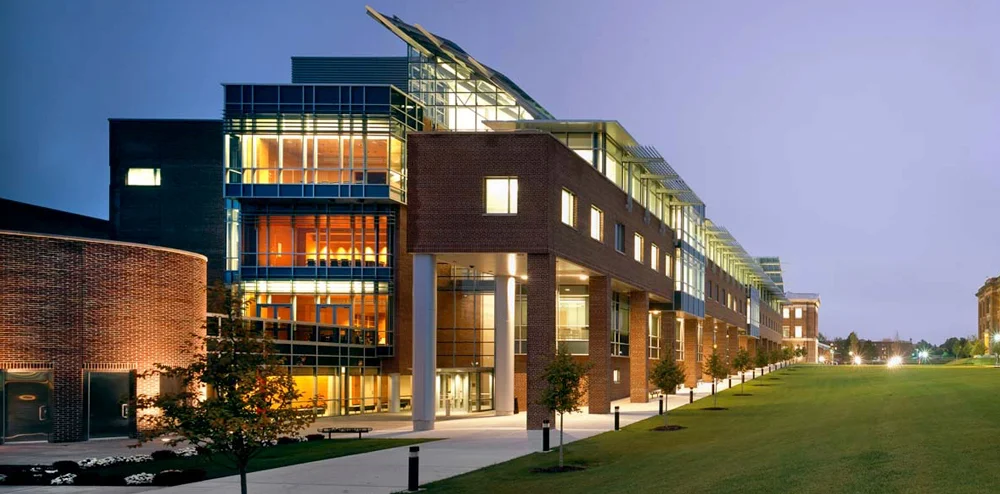
Rensselaer Polytechnic Institute is a respected school with a strong representation in the sciences; it has produced 33 research centers.
Their School of Humanities, Arts, and Social Sciences offers undergrad and graduate degrees in Game Design. Rensselaer has a New York State Center of Excellence in Digital Game Development designation.
Rensselaer offers the Bachelor of Science in Games and Simulation Arts and Sciences degree, which teaches game design theory and implementation in practice. The instruction includes technical and creative aspects of game design and simulation.
The Critical Game Design program is offered as a Master of Science degree and a PhD.
The Master of Science in Critical Game Design teaches graduate students how to create games by making a prototype as part of the thesis project. This master's program is an ideal degree to continue into a PhD program in Game Design.
The PhD in Critical Game Design is a terminal degree for game design students, and one of the very few PhDs in Game Design in America.
This program teaches game studies theory, game production, and scholarly research and writing about Game Design.
Graduates are qualified to teach at the university level. Also, this PhD degree may set apart graduates in the commercial game industry, given that this is the highest level of education in Game Design.
University of Pennsylvania
Philadelphia, Pennsylvania
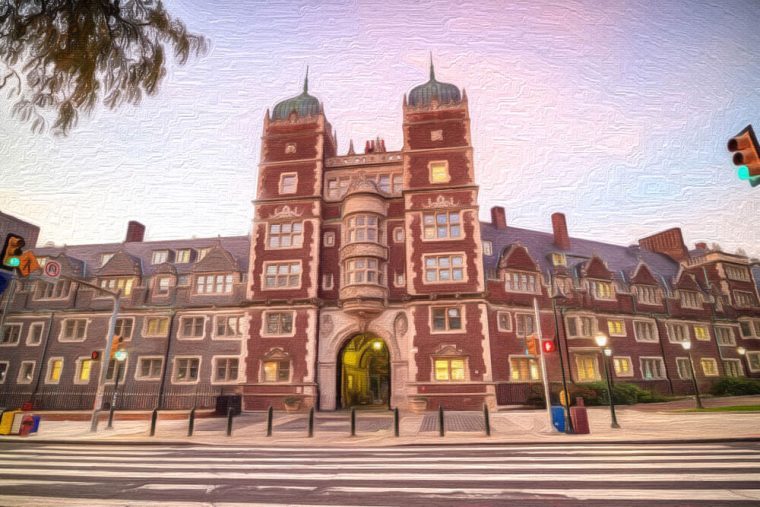
The renowned School of Engineering and Applied Science offers the Master of Science in Engineering in Computer Graphics and Game Technology program.
This program is interdisciplinary, teaching the arts and science behind computer graphics. This master's is designed to prepare graduates to work in the gaming industry as graphic designers and related careers.
Students can choose a specialization from the following four options:
- Business and Entrepreneurship
- Product Design, Development and Production
- Creative Arts and Design
- Computer Science, Systems and Technology
Savannah College of Art and Design
Savannah, Georgia

The Savannah College of Art & Design has numbers reminiscent of a research university, with over 11,000 students, 23% of which are international, and multiple campuses, (one of which is in Hong Kong).
Yet, nearly all of its academic programs are built for budding artists. There are BA, BFA, and Master's degrees within a variety of artistic fields.
Bachelor's Degrees:
- BA in Digital Media: Concentration in Game Development (on campus and online)
- BFA in Interactive Design and Game Development (on campus)
Master's:
- MA in Interactive Design and Game Development (on campus and online)
- MFA in Interactive Design and Game Development (on campus and online)
In addition to providing their students with first rate courses, Savannah College of Art and Design has the Collaborative Learning Center, which connects students with industry leaders each year.
Savannah College of Art and Design is accredited by Southern Association of Colleges and Schools Commission on Colleges.
Clark University
Becker School of Design & Technology
Worcester, Massachusetts

Clark University is a private research university, offering a bachelor's and master's in Game Design.
The Bachelor of Arts in Interactive Media: Game Design & Development offers students tracks in eight game design domains:
- 3D Art
- 2D Art
- Audio
- Programming
- Production
- Writing
- UI/UX
- Design your own
Given these options, this program is very versatile to fit many students' education goals. These tracks include teaching the artistic side of creating games, to the programming, user experience and design side of gaming education.
Students can choose the "4+1" degree track option, and attend for a 5th year and earn the Master of Fine Arts in Interactive Media degree.
The Master of Fine Arts in Interactive Media requires 15 single unit courses.
The program emphasizes student projects. MFA students will create a project of their own design and making during each year of study. These projects are displayed in a publication or exhibition before graduation.
The program offers interdisciplinary courses, seminars, and studio work. Students engage in discussions, research, and participate in various other academic activities related to game design. Students have their chance to dive deeper into their chosen game design field through writing, reading, oral presentations, or guided research.
Clark offers industry-relevant gaming software and cutting edge labs.
New York Film Academy
Burbank, California

New York Film Academy (NYFA) Los Angeles campus offers three programs in game design:
- Associate of Fine Arts in Game Design
- Bachelor of Fine Arts in Game Design
- Master of Fine Arts in Game Design
Students in the Associate's in Game Design learn programming, story development, game analysis, and programming while creating original games for their game portfolio.
The BFA in Game Design teaches industry-relevant skills in storytelling, art, design, technology, and includes business instruction of the gaming industry.
The MFA in Game Design uses project-based learning, where students learn business, ethics, history, and develop a playable game during each semester, which can build their portfolio.
Southern New Hampshire University
Manchester, New Hampshire
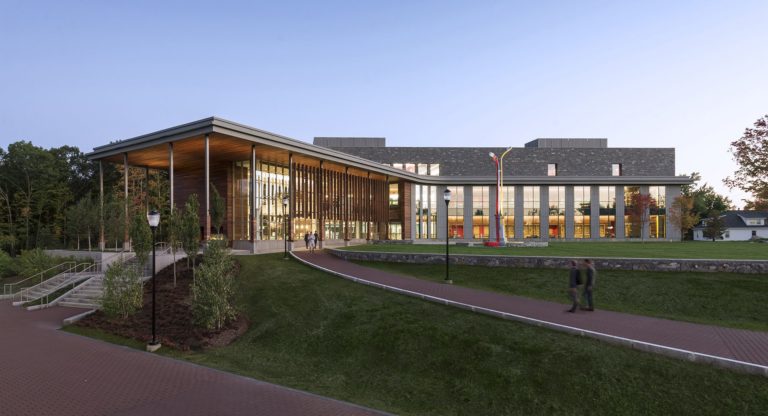
Southern New Hampshire University (SNHU) is a private, nonprofit university.
SNHU offers accelerated online degrees, which means that students can get their bachelor's degree in as short as 24 months.
The Bachelor of Science in Game Programming and Development is one of the only online programs in the nation to teach Artificial Intelligence in their game design curriculum.
Students learn professional game development proficiencies, including game physics, 2D and 3D graphics, and programming languages.
Courses include:
- Design of Virtual Game Environments
- Artificial Intelligence
- Graphics Game Engine
- Interactive Animation
Credits: 120
SNHU's online or on-campus Bachelor of Arts in Game Art and Development degree is also 120 credits, with 30 of those being electives.
Courses include:
- Illustration
- 3-D Character Animation
- 3-D Art & Design
Students will use Photoshop, In Design, Illustrator, and 3-DS Max. Students learn art and design for console web, PC, and mobile game platforms.
DigiPen Institute of Technology
Redmond, Washington

With substantial support from Nintendo, DigiPen began accepting students in 1994. It is a for-profit degree granting school that exclusively specializes in preparing students to enter the industry as skilled software developers, artists, designers, and computer engineers.
DigiPen offers both graduate and undergraduate degrees, and runs a substantial k-12 summer program.
Bachelor's:
- BA in Game Design
- BFA in Digital Art and Animation
- BA in Music and Sound Design
The Bachelor of Arts in Game Design program enables students to gain a deeper understanding of user experience, communications and psychology while creating compelling interactive systems.
Course topics include 2D and 3D level design, game mechanics, scripting languages, cognitive psychology, and more. Students also collaborate with others on a series of semester and year-long projects.
DigiPen also offers the Master of Fine Arts in Digital Arts.
The school has branch campuses in Spain, Singapore, and a partnership with Keimyung University in South Korea, in addition to its main campus based just outside of America's game design hub in Seattle.
University of Central Florida
The Florida Interactive Entertainment Academy
Orlando, Florida

The Florida Interactive Entertainment Academy at the University of Central Florida offers an immersive, interactive and project-based game design program leading to a Master of Science in Interactive Entertainment.
Students work collaboratively as a team of programmers, producers and artists on real-world projects - all with the guidance of world-renowned faculty.
The Master of Science in Interactive Entertainment has three tracks:
- Producer
- Artist
- Programmer
Depending on the chosen track, courses may include game design, technical design, 3D art, animation, AI programming and graphics programming.
Each allows students to gain hands-on experience through a capstone project:
Here at FIEA, our capstone is the creation of a full game over multiple semesters, where you will go through the entire development cycle: preproduction, production, alpha, beta. Many students decide to publish their capstone games through various avenues, such as Steam or Xbox, earning their first published title.
UCF
Graduates have worked with numerous companies including Nintendo, Microsoft Studios, Google, Unity, Pop Cap, Sony, Marvel, and even Lockheed Martin.
Michigan State University
Departments of Computer Science, Fine Arts, and Media and Information
East Lansing, Michigan

At Michigan State University (MSU) the departments of Computer Science, Fine Arts, and Media and Information combined their resources to create the Game Design and Development Specialization.
This concentration is available to students who are enrolled in the Bachelor of Arts in Media and Information, Bachelor of Science in Computer Science, or the Bachelor of Fine Arts in Studio Art.
Students are required to have nine to 11 credits already complete before they can be considered for inclusion. The majority of student are able to complete all requirements within two year.
Alumni of the school now work for companies such as:
- Red Storm Entertainment
- Microsoft Xbox Team
- Rockstar San Diego
- Microsoft Casual Games
- Sony Computer Entertainment
George Mason University
Fairfax, Virginia

Computer Game Design at George Mason University is offered as a Bachelor or a Master of Arts.
The Bachelor of Arts in Computer Game Design requires a total of 120 credits. These include 40 credits for core courses, 53-54 credits for major courses, a minimum of 12 credits for Digital Medial Electives, six to eight credits of Visual Art electives, and six to nine credits for General Electives.
The Master of Arts in Computer Game Design requires an additional 36 credit hours for graduation. These include 22 credits for core courses, nine credits for electives, and five credits for the comprehensive experience.
The curriculum for the Computer Game Design programs has been modeled after the International Game Developers Association's most recent 'Curriculum Framework' for the Study of Games and Game Development.
Southern Methodist University
Dallas, Texas

Guildhall at Southern Methodist University was founded in 2003, at the request of industry leaders in the area, as a graduate level facility with the primary focus of educating students in all aspects of game development.
The school is the first in the world to offer a Master's degree in Interactive Technology with all four cornerstones of game development available as concentrations:
- Art
- Design
- Production
- Programming
The programs and curriculum have been established in collaboration with local studios including:
- Barking Lizard
- Gearbox
- Terminal Reality
- NC Sort
- Junction Point studios
University of California-Santa Cruz
Santa Cruz, California

A small film studies program began at the University of California, Santa Cruz in 1973. As the program expanded it gradually initiated further degree tracks and was soon renamed as the Department of Film and Media Studies. Available degrees include:
- BA in Art and Design: Games and Playable Media
- BS or MS in Computer Science: Computer Game Design
- BA, MFA, or PhD in Film and Digital Media
At the graduate level, the curriculum requires a set of six core courses together with eleven (or five for the Ph.D.-only) supplemental/elective courses.
Both undergraduate and graduate courses are designed to be interdisciplinary and international in scope. Departmental affiliations include the Center for Black Studies Research and the Program Director of Race and Technology Initiative.
Rochester Institute of Technology
Interactive Games and Multimedia (IGM) department
Rochester, New York

Rochester Institute of Technology is one of the nation's most well established technical schools and resides in one of America's premier college towns.
In addition to its various other departments, Rochester runs its Interactive Games and Multimedia (IGM) department, which is one of the largest of its kind. The Game Design and Development degrees are offered through the Golisano College of Computing and Information Sciences.
Undergrad degrees:
- BS in Game Design and Development
- BS in New Media Interactive Development
- BS in Web and Mobile Computing
- BFA in 3D Digital Design
Graduate degree:
- Master of Science in Game Design and Development
The IGM offers over 150 classes in a given year, and includes multiple degrees specifically in Game Design and Development.
It helps run programs such as the Global Game Jam, which both invites students to develop their skill set and helps them network with others in the industry, and the Image Cup Hack-a-Thon.
New York University
Tisch School of the Arts
New York, New York

New York University's Tisch School of the Arts has fully capitalized on its proximity to Broadway and is now one of the most respected creative centers in the world. The school's approach to the fine arts has always been interdisciplinary and included cutting edge technology.
The school has a Bachelor of Fine Arts in Video Game Design degree available. Students will receive a well-rounded education in the theory behind games and the hands-on experience needed for the field. The undergraduate program offers areas of specialization in:
- Game Programming
- Visual or Audio Design
- Business for Games
Additionally, its computer science credentials remain unquestioned as the program operates under the world-famous Courant Institute of Mathematical Sciences.
University of Arizona
School of Information
Tucson, Arizona

University of Arizona offers the on-campus Bachelor of Science in Game Design and Development degree.
Credits: 120
This program is designed to teach students how to become game designers in more industries than just commercial gaming; students also learn how to make gamification of instructional training for business, healthcare applications, and other uses.
Courses include:
Students can either get a double major, or a minor (which is 18 credits), in this program.
Courses include:
- Ethics in a Digital World
- Digital Storytelling and Culture
- Introduction to Game Design
- Research Methods/Data Course
- Computational Thinking and Doing
This degree includes a capstone project.
Indiana University-Bloomington
The Media School
Bloomington, Indiana

The Media School offers the Bachelor of Science in Game Design degree. This program uses storytelling and animation combined with digital platforms to create games.
Students will participate in a three semester sequence, in which students will actually create and bring their own game to life.
This sequence is modeled after real-world commercial game design company project workflow. Familiarizing students in this process prepares them to enter into a familiar experience when employed at game design companies.
This degree allows students to work with other departments for learning different specialities, such as programming, animation, graphic design, and even video game music.
These departments include:
- Luddy School of Informatics, Computing and Engineering
- Eskenazi School of Art, Architecture and Design
- Jacobs School of Music
Courses Include:
- Introduction to Games
- The Videogame Industry: Systems and Management
- Game Technology
Champlain College
Burlington, Vermont
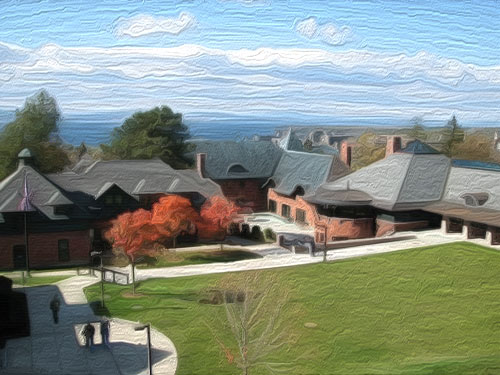
At Champlain College the self-consciously "upside down" curriculum gets students studying what they are most passionate about from the first day of class. Champlain College offers a Bachelor of Science in Game Design on-campus, and an online Bachelor of Science in Interactive Game Design.
Here undergraduate students learn about systems design, level design, narrative design, game engine design, and studio collaboration. On-campus students have access to the state-of-the-art Game Studio.
In addition to their successful undergraduate program, Champlain also offers a prestigious Master of Fine Arts degree in Emergent Media that focuses on filling a student's portfolio with substantial projects, and offers many study abroad programs in places like Dublin or Montreal.
The school also offers its annual senior show which allows students to showcase their work before an audience well attended by industry leaders.
Liberty University
Lynchburg, Virginia

The online and on campus Bachelor of Science in Information Technology at Liberty University has a concentration in Game Design.
The course consists of 120 credits, and 30 hours of upper-level courses is required. Classes include instruction in:
- C# Programming
- Digital Imaging
- 3-D Graphics
The online BFA in Studio and Digital Arts: Graphic Design focuses on digital art in particular. Course topics may include:
- Fundamentals of Design
- Animation
- Publication Design
- Vector Illustration
- Typography
Students applying to this program must submit a portfolio for admittance. The degree consists of 120 total hours, which includes 30 hours of upper level courses.
Getting a degree in Graphic Design prepares students for an opportunity to work in the artistic side of video game development.
Lamar University
Department of Computer Science
Beaumont, Texas

Lamar University offers a Bachelor of Science in Computer Game Development.
This on-campus or online program is designed to teach students game development, computer modeling, and graphic visualization within computer science. This is also one of the only online game programs that teaches artificial intelligence in the U.S.
Major courses include:
- Artificial Intelligence
- Mobile Computer Game Development
- Introduction to Computer Game Development
- 3D Animation for Computer Graphics
- Computer Graphics
- Computer Game Development I
Quinnipiac University
Hamden, Connecticut
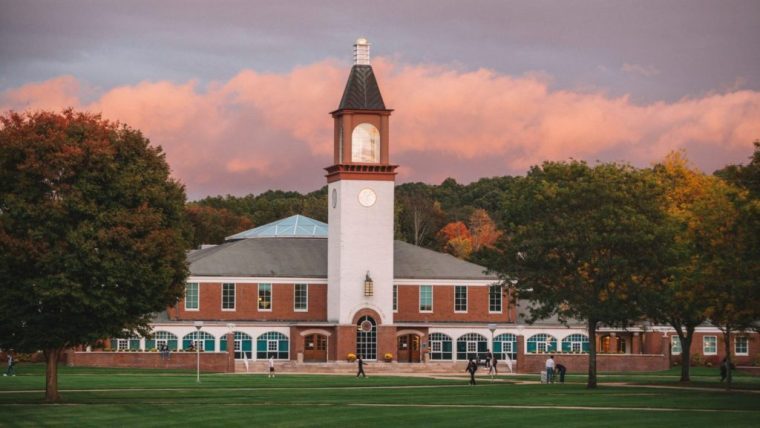
The Bachelor of Arts in Game Design and Development is offered through the College of Arts and Sciences at Quinnipiac University.
There are two academic tracks for students to choose:
- Game Art, focusing on creating game characters, architecture, and levels
- Game Development, focusing on the structure and rules of games
Students will have ample opportunity for hands-on experience through the Center for Game Development, unique game labs for interdisciplinary team work on game prototypes, internships, and research projects.
Students may also wish to participate in the LA program which allows them to intern at successful California gaming companies such as Electronic Arts, Blizzard, Facebook, and others in the gaming industry.
Lindenwood University
College of Arts and Humanities
Saint Charles, Missouri

Lindenwood University offers the Bachelor of Arts in Game Design degree, which can be taken online, on-campus, or as a hybrid of both. This degree is specifically designed around preparing graduates to work in professional game studios.
Credits: 36 hours of major credits - 21 hours of core courses, and 15 hours of electives.
Core courses include:
- Game Development
- Prototype Studio
- Adobe Certification in Photoshop
- Team Studio II
- Introduction to Game Design
Elective courses include:
- Concept Design
- History of Games and Critical Theory
- Writing for Game Design
- Audio for Games
Students learn character development and storytelling and how to integrate their skills into creating games.
Fisher College
Boston, Massachusetts

Fisher College is a non-profit college in Boston. It offers the Bachelor of Science in Information Technology with a concentration in Game Development.
This gaming school teaches mobile and computer games that are 2D and 3D. Students learn Information Technology and Computer Science fundamentals, and how to apply them to creating games.
Courses include:
- Website Programming and Development
- Advanced Web Application Development
- Operating Systems
- Information Security and Privacy
- Computer Science Internship I
- Computer Science Internship II
This can also be taken as a degree completing program for students who already have over 30 credits. This degree can be taken online or on campus. Terms are 8 weeks long. The online degree can be completed in 3 years and 4 months.
Saint Edward's University
School of Arts and Humanities: Department of Visual Studies
Austin, Texas

The School of Arts and Humanities offers the BA in Video Game Development degree. This degree requires 56 hours of courses in the game development major.
Students learn storytelling, game design, and game audio. One important and relevant aspect of this program is that it teaches game design students how to implement but also how to adapt to changing technologies and business practices as the game design industry itself changes in these ways.
Courses include:
- visual studies
- computational foundations
- game development
- digital media
This program prepares graduates well for pursuing master's degrees.
This schools is located in the third biggest epicenter of game design, in Austin, Texas.
Hampshire College
Amherst, Massachusetts
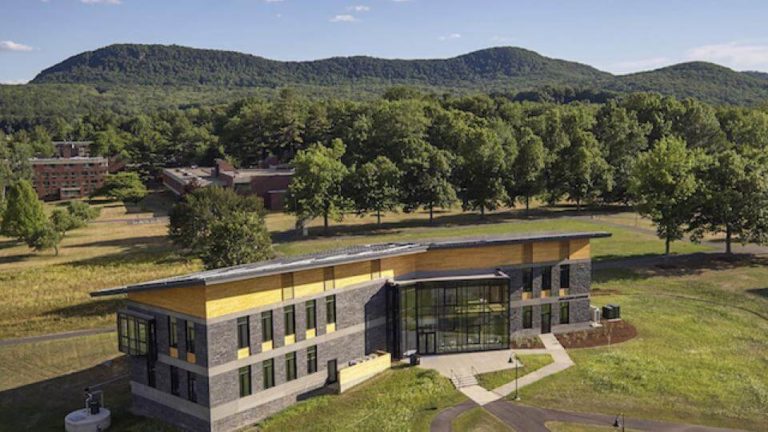
At Hampshire College, the Bachelor's degree in Game Design and Development takes an average of four years to complete. Course work is project-based in an effort to expand student portfolios.
To assist with research, students have access to a game laboratory with both modern and historic consoles as well as an ever-increasing game library with hundreds of digital and analog games available to rent.
Other facilities managed by Hampshire College include:
- The Cluster Computing Facility, which maintains a high-performance Beowulf-style computer cluster
- The Liebling Center for Film, Photography, and Video, and the Johnson Library Center both used for computer animation, film and video editing, and digital design
Columbia College Chicago
Chicago, Illinois

Columbia College of Chicago has one of the lowest tuitions of any private Arts and Media school in the U.S. and is one of the largest with over 10,000 students enrolled. The Interactive Arts and Media (IAM) department has three concentrations:
- Game Sound Design
- Game Art
- Game Design
In addition to these tracks, students can choose a separate Game Programming major.
Regardless of the concentration or major, all students become familiar with the foundations of Game Design and build competitive portfolios.
Graduates from IAM have landed successful careers working for companies such as Dreamation, Jellyvision, RedEye Studios, WMS Industries, and Liquid Generation.
Drexel University
Westphal College of Media Arts and Design
Philadelphia, Pennsylvania

Drexel University was the first university to require students to have micro-computers (1983), the first major university to have a fully wireless campus, provided the first mobile web portal for students, and developed the first university portal app across all five major platforms.
Drexel offers the BS in Game Design and Production. This degree teaches students storytelling, programming, and animation and graphics. All of these skills are necessary to game design careers.
Drexel students have won numerous awards such as first place in the Microsoft Imagine Cup, the Unity Awards, the GDC's Narrative Review Competition, and first place in the Adobe Achievement Awards.
The school has particular strengths in using games to facilitate learning and even offers a Learning in Game Based Environments Certificate.
University of Advancing Technology
Tempe, Arizona

UAT offers four degree options in game design. All are available online and on-campus:
1. The online Bachelor of Arts in Game Art and Animation degree program. Students develop skills needed to create 3D art for video game platforms. Students learn artistic principles used in 3D video game art creation, which includes lighting, color theory, shading, anatomy, perspective, and 3D mesh topology, and others.
2. The online Bachelor of Arts in Game Design degree program. Students build and create complete game design projects with faculty and fellow students. The program encourages collaboration with students and faculty across all gaming degree majors.
3. The online Bachelor of Science in Game Programming degree program. Students develop a broad coder skill-set and expertise in many platforms and languages. Students hone their abilities in game play interaction, game engine architecture, artificial intelligence, and networking.
4. The online Master of Science in Game Production and Management degree program. This program consists of four modules. Students complete modules in Game Development and Game Production, and then can choose from 10 other options for the next two modules.
These include Cyber Organization, Technology Leadership, App Development, Digital Maker. Students tailor their Master of Science in Game Production to their interests and goals.
Grand Canyon University
College of Science, Engineering and Technology; College of Arts and Media
Phoenix, Arizona

Grand Canyon University (GCU) is a private Christian university and leader in online and on-campus education. GCU offers online bachelor's through doctorate degrees in a large variety of subjects.
GCU offers the on-campus Bachelor of Science in Computer Science: Game and Simulation Development degree, which teaches Computer Science behind creating games.
Students learn skills such as storyboarding, how to create increasingly difficult and complex game levels, AI algorithms for games, and the process of how to make and deploy games for mobile devices.
This program is one of a small few ABET-Accredited Computer Science Degrees in Game Development in the nation.
GCU also offers the online Bachelor of Arts in Digital Design: Animation program. Students can learn these skills, among others:
- 3D modeling
- motion graphics
- 2D animation
- typography
The Higher Learning Commission (HLC) grants accreditation to GCU university wide.
Full Sail University
Winter Park, Florida

Full Sail University's online Bachelor of Science in Game Design can be taken as an online or on-campus degree. This program focuses on four major topics:
- production methodologies
- project management
- team leadership
- game capstone project
Production methodologies teaches students concepts from computer code to color theory. Project management covers areas of software production, including asset management and quality assurance.
The online Bachelor of Science in Game Art can be completed in 29 months.
Courses include:
- Model Creation
- 3-D Foundations
- Game Characters
- Game Animation
This program includes seven Career Modules (each Module is worth one credit), that are woven into the classes, that are intended to help students transition from college to their career in Game Design. Full Sail also offers career development advisers to help students find employment after graduating.
Fitchburg State University
School of Arts and Sciences, Communication Media Department
Fitchburg, Massachusetts

Fitchburg State University offers an on-campus Bachelor of Science in Game Design degree.
Students learn industry relevant skills, such as gameplay mechanics, how to create 2D and 3D digital art, tell engaging stories, and unify game aesthetics. Students also learn to think about games in their proper theoretical, historical, aesthetic, and social perspectives. Along these lines, they garner a sense of responsibility in their study and development of games.
Courses include:
- Game Level Design
- 3D Game Development
- Game Studio
- Introduction to Game Art
Students work on their capstone project at the IdeaLab, an off-campus studio where students collaborate with peers, faculty, and industry professionals.
DePaul University
Chicago, Illinois

DePaul University manages the College of Computing and Digital Media which is comprised of three schools: Cinematic Arts, Computing, and Design.
For students who are interested in new technology, designing and embedding games, or studying social practices, the School of Design is the right choice. There are two undergraduate programs offered:
- B.S. in Game Design
- B.F.A. in Graphic Design
Graduate students have four degrees to select from including:
- MA in Digital Communication and Media Arts
- MS in Experience Design
- MFA in Game Design
- MS in Human-Computer Interaction
Research and creative activity areas include Animation, Human-Computer Interaction, Screen Writing, and Visual Computing.
California State University-Chico
Chico, California
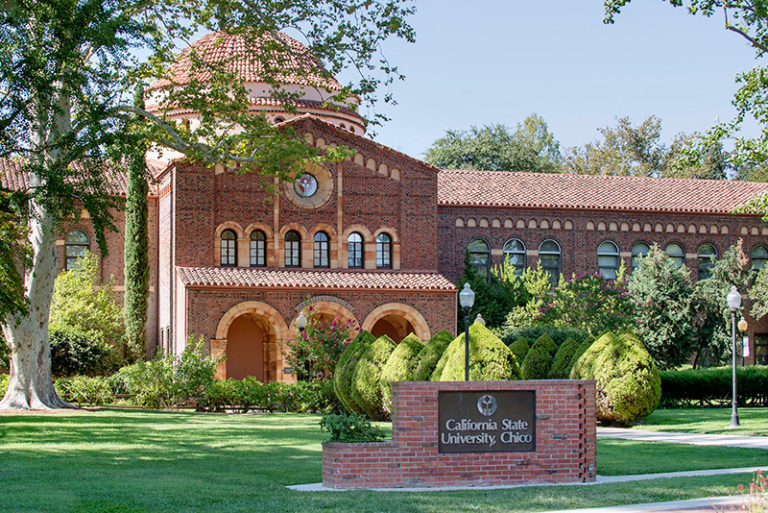
California State Chico offers the Computer Animation and Game Development program. As the name implies, this program focuses on game animation and game development. This includes learning 3D modeling.
Students collaborate with other students in groups to understand game design processes and produce games.
This also includes learning how to create games for mobile platforms. A minor in Video Game Design is also an option.
Shawnee State University
Portsmouth, Ohio

Shawnee State University has been recognized as a Center of Excellence in Immersive Technology.
The school offers two comprehensive undergraduate degrees:
- Bachelor of Fine Arts in Game and Simulation
- Bachelor of Science in Digital Simulation and Gaming Engineering Technology
With a 16:1 student to faculty ratio, Shawnee is able to provide a more personalized educational experience.
Additional academic support and hands-on experience is provided in facilities such as the Motion Capture Studio Lab - for simulating game animation and character movements, or at annual events such as the Art and Technology Game Conference (which attracts game developers and industry leaders from across the country.)
University of Wisconsin-Stout
Menomonie, Wisconsin

For those students interested in Game Production or Design there are number of relevant degrees available at the University of Wisconsin. These include:
- Bachelor of Fine Arts in Entertainment Design with specializations in Animation, Comics and Sequential Art, or Digital Cinema
- Bachelor of Fine Arts in Game Design and Development with a concentration in Art
- Bachelor of Fine Arts in Graphic Design and Interactive Media with specializations in Communication Design or Interaction Design
There is also one graduate level program, a Master of Fine Arts in Design, offered with a blended delivery.
Ringling College of Art and Design
Sarasota, Florida

Ringling has a particularly adept gaming art program. Undergraduate degrees offered related to the field include:
- Game Art
- Graphic Design
- Illustration
- Motion Design
- Photography and Imaging
- Virtual Reality Development
- Visual Studies
The school has been recognized for its successful animation multiple times. Ringling students have won gold and bronze in the student academy awards, and Ringling alumni were a part of the Oscar winning Frozen animation team.
This eclectic arts school also offers its students ample training in all the traditional, technical areas that designers need such as audio and programming. Multiple summer art programs and courses are also available.
Worcester Polytechnic Institute
Worcester, Massachusetts

Worcester Polytechnic Institute offers a Bachelor of Science in Games and Simulation Arts.
All undergraduates must participate in a group based Interactive Qualifying Project (IQP).
One example of the IQP is the "virtual joust" now used at the Higgins Armory Museum that allows visitors to experience a joust in a Flash-based game through a Nintendo Wii.
Graduates of Polytechnic Institute have landed successful careers with companies such as Infinity Ward, Irrational Games, and Owlchemy Labs.
Southern Arkansas University Main Campus
College of Liberal & Performing Arts
Magnolia, Arkansas

Southern Arkansas University (SAU) offers the Bachelor of Fine Arts in Game, Animation and Simulation degree.
Credits: 121 credit hours
This degree is a residential on-campus program.
Learning outcomes include:
- Learning industry tools
- Art history
- Communicating design and visual arts effectively, which includes oral, visual and written communication
- Learn ethical and civic art implications and impacts
- Develop traditional art techniques and technological knowledge necessary to work in art and design fields
- Analyses of problems in visual design, including how to use information to design relevant art with oral or written language
Courses include:
- Introduction to Game Development
- Game Design Management
- Introduction to 3D Modeling Tools
- Graphic Software Applications
This program teaches students how to create games for education and entertainment, and also for commercial and industrial fields.
Cleveland Institute of Art
Cleveland, Ohio

Cleveland Institute of Art (CIA) is a small, specialized school of just over 500 students. It recognizes the need for creative expression to embrace the endless possibilities offered by the information age.
Consequently, the school has created a Game Design major headquartered in a former FORD auto assembly factory.
Here, students have access to an entire game editing suite, a sound editing and recording studio, a green-screen studio, two lighting and shooting areas, and a fully stocked game room.
But CIA has more than just fancy equipment to play with. It also has some of the top minds in the business.
University of California-Irvine
Irvine, California

The Donald Bren School of Information and Computer Science began in 1968. In 2002 it became California's first Computer Science school. There are currently three departments, Computer Science, Informatics, and Statistics, which offer a total of eight majors.
The Bachelor of Science in Computer Game Science includes classes such as:
- Introduction to Film and Visual Analysis
- Computer Games and Society
- Discrete Mathematics for Computer Science
- Game Technologies and Interactive Media
Purdue Global
West Lafayette, Indiana
Purdue Global offers online and on-campus degrees for undergrad and graduate degrees in Game Design.
Purdue's online Bachelor of Science in Information Technology - Game Development concentration degree is a technical game design program that teaches students how to create games to facilitate business training.
Students learn how to create storylines, develop characters, develop the mechanics of role-playing, and immerse the user into the game interactively.
Courses include:
- Project Management
- Programming Concepts
- systems Analysis and Design
Students take 93 major credits, 45 core credits, and 42 elective credits, for a total of 180 credits in the degree program.
Purdue Global also offers the Associate of Applied Science in Information Technology - Game Development.
Oklahoma Christian University
Edmond, Oklahoma

Oklahoma Christian University is a small, private Christian school with just under 2,600 students and yet it has made a large impact on the community, specifically in the area of Game design.
In fact, both the Princeton Review and PC Gamer have nationally recognized the school for its Bachelor of Fine Arts in Graphic Design and a Master of Fine Arts in New Media programs.
Students have access to an advanced MAC Lab with a plethora of programs necessary for research and class projects.
Students will complement the study of essential topics like 3-D modeling, texturing, rigging, animation, and game production with courses in the history of film and other artistic mediums.
The New School
New York, New York

People outside the video game industry often perceive the business as purely focused on entertainment. Although that remains the driving force behind video game creation, Parsons shows students how to use their skill sets in creative ways for humanitarian ends.
For instance, Parsons teamed up with the Red Cross through Pet Lab to build games that teach people in vulnerable areas about the importance of climate preparation. They also work with Games for Change, a non-prophet dedicated towards education.
In addition to these altruistic projects, Parsons also instructs students in all the traditional areas with student training culminating in a 12-credit project solving a real-world problem with game design.
Parsons is also sensitive to the recent move in games across multiple platforms such as the i-pad, i-phone, and Android.
Sacred Heart University
Fairfield, Connecticut
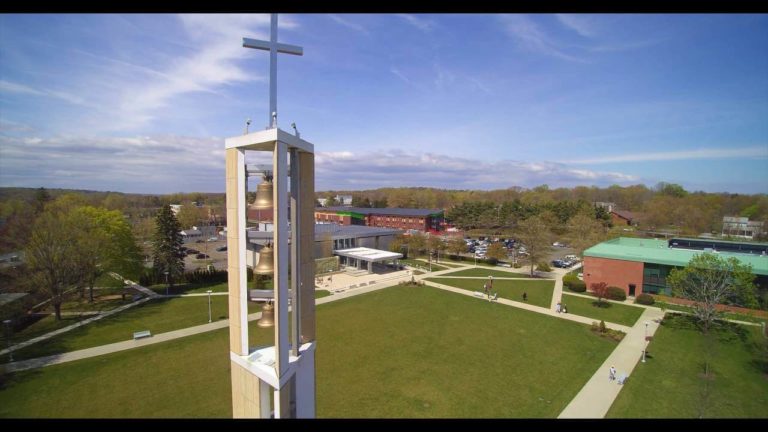
Sacred Heart University's School of Computing has been ranked in the top 50 undergraduate programs and the to 25 graduate programs for the Game Design and Development degree.
Undergraduate students must enroll in the Computer Science/Information Technology programs to access the Game Design and Development major.
Courses include:
- OOP and C# Games
- Analysis of Algorithms
- 3D Object Creation
Graduate level students may enroll in the Computer Gaming Design and Development certificate program.
Students will learn and research in three state-of-the-art computer labs, one of which is open 24 hours a day, seven days a week.
Abilene Christian University
Abilene, Texas

Abilene Christian University's College of Business Administration hosts the School of Information Technology and Computing.
There are five undergraduate majors for students to choose:
- Computer Science
- Computer Science and Math with Teacher Certification
- Digital Entertainment Technology
- Information Systems
- Information Technology
Those enrolled specifically in the Bachelor of Science in Digital Entertainment Technology will be required to complete 128 credit hours with three areas of specialization to choose from:
- Film and Media Production
- Digital Design
- Game Development
Hands-on learning experiences and networking opportunities are offered in the form of various clubs and activities. These may include the:
- Digital Entertainment Technology club
- Film Fest
- LA Film School
- Springboard Ideas Challenge
- Women in Technology group
Northeastern University
College of Arts, Media, and Design
Boston, Massachusetts

Northeastern University's College of Arts, Media, and Design offers training in Game Design running from undergraduate minors through graduate degrees. Their program has both a Digital Arts and a Computer Science branch.
They also manage the Playable Innovative Technologies Lab which researches various topics such as visual analytics, adaptive lighting, and resource management models. Northeastern applies this hands-on approach to its education system.
Students are exposed to a co-op program that gets them working alongside industry giants including:
- Microsoft Game Studios
- Zynga
- Tencent Boston
- Tapwalk
- SAIC Corporation
Northeastern professor Susan Gold became famous throughout the game design community when she launched the first Global Game Jam. These events bring students from across the world together to develop games based on a common theme.
The University of Texas at Dallas
Richardson, Texas
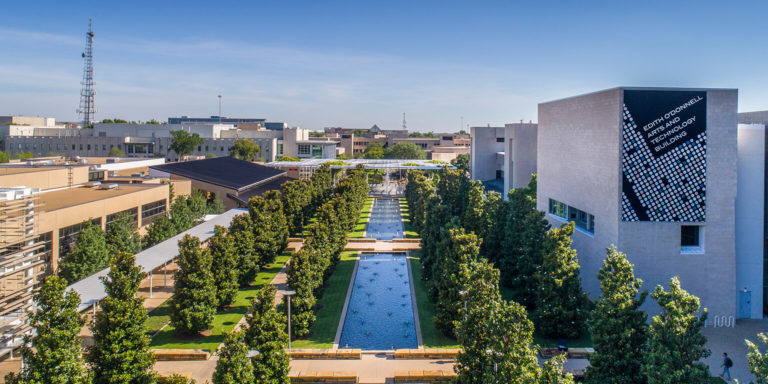
The University of Texas at Dallas offers a bachelor's in Arts, Technology, and Emerging Communication degree which has concentration options in Animation and Games, Critical Media Studies, or Emerging Media Arts.
The Animation and Games concentration teaches students the fundamentals in the creation and development of games and digital animation. These include:
- social gaming
- 3D computer animation
- motion capture
- educational games
- real-time entertainment
- motion graphics
Students can meet with their advisor and apply to the Animation and Games concentration in their 3rd semester.
Webster University
School of Communication - Department of Media Arts
Saint Louis, Missouri

Webster University offers a Bachelor of Arts in Games and Game Design degree.
Students learn game design as a team, collaborating with other students to create games for computers, mobile devices, and traditional analog games.
The School of Communication has a state-of-the-art facility for education and media production.
Cornell University
College of Arts and Sciences
Ithaca, New York
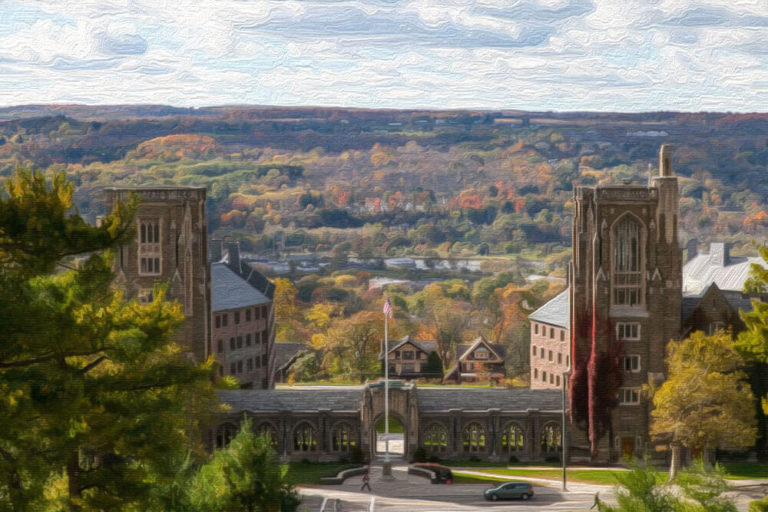
Cornell founded its Game Design undergraduate program in 2001, making it one of the oldest and the first to be founded by an Ivy League school. Cornell offers a Minor in Game Design through the College of Arts and Sciences.
Students gain interdisciplinary networking experience through the Game Design Initiative (GDI). Cornell has put students in companies and studios such as:
- Nintendo
- Electronic Arts
- Zynga
- Bungie
- Valve
- Irrational Games
It has also been at the forefront of social and mobile gaming, and an increasing number of alumni are branching out into their own startup companies.
The school also offers an outreach programs for high school students in the local Ithaca area. Although no formal graduate program currently exists, numerous professors and graduate students all benefit from and work within GDI.
Los Angeles Film School
Hollywood, California

Los Angeles Film School offers the Bachelor of Science in Animation - Game Art concentration.
Credits: 120
Time to completion: 36 months (3 years)
This program teaches students a hand-on approach to the art of game creation, which includes creating characters and the environments in the worlds that make up the game settings.
Courses include:
- Environment Art
- Portfolio Preparation
- Technical Game Arts
- Art Creation for Games
- Contemporary Art
- Lighting and Rendering
Students interested in working in the artistic side of the game industry should consider this program.
University of Denver
Denver, Colorado

Located in the scenic Rocky Mountain region, the University of Denver was established in 1864, making it the oldest independent private institution of higher education in the area. The largest and most diverse unit at the school is the Division of Arts, Humanities, and Social Sciences.
More than 70 undergraduate or graduate degrees are available through the Division, and include the Emergent Digital Practices program and the Media, Film and Journalism Studies.
The University of Denver offers a Bachelor of Arts in Emergent Digital Practices.
This degree requires a total of 60 major credits for completion. Students enrolled in this program are required to have a minor, second major, or dual-degree in another discipline. Courses include:
- Game Design: Paper to Digital
- Making Critical Games
- Making Educational Games
- Data Visualization
- Advanced Video Art
Bradley University
Peoria, Illinois

In 1897 the Bradley Polytechnic Institute was established and after years of growth and expansion the Institute was rededicated as a four-year college in 1920 and was granted University status in 1946.
Through the Slane College of Communications and Fine Arts at Bradley, students may register for the Bachelor of Arts or Bachelor of Science in Game Design.
This undergraduate curriculum concentration exposes students to topics including gameplay, visual and audio media, and storytelling and conception. Students may also have ample opportunity to participate in team work with other professional programmers and artists.
Bradley also offers an Interactive Media Program which works in conjunction with the Departments of Art, Computer Science, and Theater Arts. Concentrations for this program include Animation and Visual Effects, Game Design, and Web and Application Design.
Woodbury University
Burbank, California

Woodbury University was founded n 1884. Its exponential growth and progressive outlook, among other factors, gained the school recognition as a National College of Distinction. There are more than 20 practice-based professional and liberal arts undergraduate and graduate majors available.
The School of Media, Culture, and Design at Woodbury offers a Bachelor of Fine Arts Game Art and Design program.
There are two concentrations within the major: Game Art or Game Design.
Students who study Game Art will focus on 2-D and 3-D character and environmental designs, while students studying Game Design will learn play mechanics, scoring systems, and prototyping.
The Game Art and Design programs received Plan Approval from the National Association of Schools of Art and Design.
New England Institute of Technology
East Greenwich, Rhode Island

The New England Institute of Technology strives to provide students with a well-rounded education in both analytical skills and hands-on training.
For students interested in the field of Digital Media there are a variety of programs to choose from. At the Associates and Bachelor levels students can major in:
- Digital Media Production
- Game Development and Simulation Programming
- Graphics, Multimedia and Web Design
- Video Game Design
- Business Management
Students interested in further education can pursue the online Master's in Information Technology. The majority of students are able to complete the Associates programs in as little as 18 months and the Bachelor's programs in three to four years.
High Point University
High Point, North Carolina

The Nido R. Qubein School of Communication at High Point University creates a communal atmosphere with interdisciplinary research and networking between 750 scholars within disciplines.
Within the 128-credit hour Bachelor of Arts in Communication there are seven areas of specialization from which to choose:
- Electronic Media Production
- Game and Interactive Media Design
- Journalism
- Media and Popular Culture Studies
- Sport and Event Management
- Sport Communication
- Strategic Communication
Required course work for the Game and Interactive Media Design sequence may include:
- Theory and Criticism of Games
- Communication Law and Ethics
- Human Communication
The majority of courses are weighted at four credits each.
North Carolina State University at Raleigh
Raleigh, North Carolina

North Carolina State is home to one of the oldest Departments of Computer Science in the nation, having established their department in 1967.
The undergraduate Computer Science major offers the opportunity to further specialize in a game development concentration.
Students will use the core classes of the computer science degree to gain an understanding of the algorithms and technologies behind creating games. With a minimum requirement of 121 credits, students study a variety of topics such as:
- Artificial Intelligence
- Building Game AI
- Computer Models of Interactive Narrative
Honors presented to faculty members include:
- Consumer Electronics Hall of Fame Inductee
- Two American Association for Artificial Intelligence Fellows and a Senior Member
- Emmy Award recipient in National Academy of Television Arts and Sciences for plasma screen technology
Carnegie Mellon University
Integrative Design, Arts, and Technology
Pittsburgh, Pennsylvania

Carnegie Mellon University has long been known as one of America's leading schools in many disciplines.
The university's Integrative Design, Arts, and Technology (IDeATe) network allows students to complete a Game Design minor.
The interdisciplinary program features both practice and theory of game creation. Topics include interface design, visual asset creation, and character development.
Undergraduate Minor:
- Game Design
This Game Design Minor is open to students who are enrolled in any major. Students will collaborate with the Entertainment Technology Center at CMU.
Academy of Art University
San Francisco, California
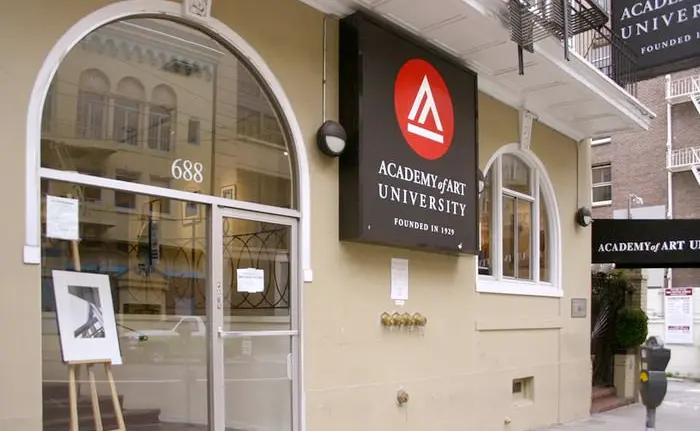
Established in 1929, by artists for artists, Academy of Art University has grown to become the nation's largest accredited private art university offering degrees, personal enrichment courses, portfolio and teacher grants and high school scholarships in 29 unique programs.
The School of Game Development offers the Bachelor of Science in Game Programming, which is the first BS degree at the Academy. Students can learn 3-D modeling, digital drawing, texturing, and engineering and programming for game creation and design, among other skills.
Students can also learn to write code and understand the math that goes into programming game creation.
University of Michigan-Dearborn
Dearborn, Michigan

U of M's Extended Learning and Outreach branch offers the Graduate Certificate in Game Design on campus and online. For admittance to the Certificate program, students must have an overall G.P.A. of 3.0 or higher in a Bachelor's degree of Engineering or Computer Science.
Additionally, students should already be enrolled in a degree program at the University of Michigan. If not already enrolled, applicants must apply as non-degree seeking. The Certificate consists of 12 credit hours, and is designed to provide theoretical and real world instruction in programming video games.
Core classes will detail game programming methods. The Certificate's electives classes are designed to strengthen student's software engineering and computer science abilities that are relevant to programming.
With nearly 30 electives to choose from, students may specialize in subjects including mobile games, software design, and world building. Before graduation students must complete a two-quarter capstone course which requires a team effort in designing and implementing a new game from the ground up under the supervision of game designers from the local video game industry.
Ferris State University
Big Rapids, Michigan

At Ferris State University, the College of Education and Human Services manages the School of Digital Media. The available undergraduate degrees include:
- Bachelor of Applied Science in Digital Animation and Game Design
- Bachelor of Science in Digital Media Software Engineering
- Bachelor of Science in Television and Digital Media Production
An Associate of Science degree in Digital Media is also offered. Graduate level studies are not currently available in this field. Throughout their studies students will compile a competitive portfolio and gain internship experience with industry leaders.
As standard four-year undergraduate degrees, students will be expected to complete a minimum of 120 credits before graduation.
Rocky Mountain College of Art and Design
Lakewood, Colorado

Located at the edge of the Rocky Mountains, the Rocky Mountain College of Art and Design was founded in 1963 as a school for the arts. RMCAD offers both campus and online degrees, with the online programs offering degrees in Bachelor's and Master's.
Degree majors include Game Art, 3-D Animation, Art Education, Fashion Design, and Illustration. The online Bachelor's in Game Art consists of 120 credit hours, which offers students a well-rounded education through a liberal arts background with an analytic basis.
The 51 core credits required for the degree include instruction in 3-D Computer Animation Motion Studies, Character and Level Design, Lighting and Texture, and Game Shade Development. Standard video game software is used as the basic educational tool. Instructors encourage creativity and innovation.
Lee College
Baytown, Texas

Lee College offers an Associate of Arts in Game Design, Associate of Applied Science Game Development Specialist, and two certificates of completion - Game Designer and Game Specialist.
The associate's programs are designed to teach game design fundamentals and skills, including
- animation
- graphic arts
- programming
- storyboarding
Courses in the AAS Game Development Specialist include:
- Business Computer Applications
- Interactive Storyboarding
- Introduction to 3D Game Modeling
- Design and Creation of Games
The AAS program requires 60 credits.
More resources:
- The Best Video Game Art and Animation Degrees
- The Best Bachelor's in Computer Science: Game Design Degrees
- The Best Online Certificates in Game Design
- The Best Online Associate's Degrees in Game Design
- The Best Online Screenwriting Colleges
- The Top Women in Game Design and Development
- The Best Online Animation and Graphic Design Colleges
- The Best App Development Colleges
- The Best Artificial Intelligence Colleges: AI Degrees and Certificates
- The Best Online Artificial Intelligence Degrees
- The Best Online Video Game Design Degrees
Frequently Asked Questions
What college major is for Video Game Design?
Here are a few standard majors for a bachelor's degree in Game Design: Online Bachelor of Art in Game Art and Development, Online Bachelor of Science in Game Programming and Development, Online Bachelor of Science in Information Technologies - Game Design and Development.
Video Game Design generally falls into these two categories: the art and storyline side, and the technical programming and development side. If the major is for Game Art, Animation and/or Graphic Design, generally speaking, it will be a Bachelor of Arts degree.
If the degree is for the technical side of Game Design, such as programming or information technology, it will be a Bachelor of Science degree. It's important to keep this is mind when deciding which major to choose for Game Design. Are you interested in the art (animation and graphic design), or the computer science side (programming and development)?
Why do Game Designers attend college?
Game Designers attend college to learn the tools and skills necessary for getting hired by professional Game Design developer companies, such as EA Sports. Professional Game Design requires technical abilities. Even game design art majors learn how to use industry standard tools in digital animation.
Given the many options for degrees in Game Design now offered by on-campus and online colleges, students can choose from a variety of specializations, such as Game Art, Animation, Graphic Design, Game Development, and Computer Science with emphasis in Games. These degree options allow game design students to specialize in these game design fields, and potentially pursue for employment after getting a degree.
Is going to college for Game Design worth it?
Yes, in two ways: growth and salary. Concerning growth, there is a growing demand for game designers and game artists according to Recruiter.com, Game Designers have a growth rate of 2.8% each year, adding 32,090 new jobs by 2029. The median average earnings for Game Designer is $130,000 according to ZipRecruiter.
What should I study for Game Design?
It really depends on whether a student would like to work in the art/conceptual domain, such as animating and creating storylines for games, or in the technical side of programming and development. Both are necessary for the game to be designed and completed.
The story, animation, and graphics are usually Bachelor of Arts degrees (BA). The technical degrees are Bachelor of Science degrees (BS). Animation and Graphic Design | Game Designers: Students who want to work in animation and graphic design will study digital arts. This includes learning visual storytelling, learning to use digital graphics in 2D and 3D, and technical equipment that is used as the medium for animation and graphics.
Is Game Design hard?
The answer to this question depends on your skill sets and capabilities. Are your skills oriented more towards animation and graphic design, and/or the storyline behind games? Then a bachelor of arts in Animation, or Graphic Design would likely be easier than the technical bachelor of science degrees. However, if your skills are more technical, then the bachelor of science in Game Development would be easier. Generally speaking the bachelor of arts is considered the easier degree, given its lack of technical requirements.
Does Game Design require math?
Yes. Math is behind the programming and art at every level of game design. However, there are tools that animators use that calculate the math behind the art's rendering, so that the artist can just draw using the tools of the trade (without needing to perform the calculations). Math is used more directly by programmers. Kinds of math used in Game Design are algebra, applied mathematics, trigonometry, and calculus.
Is it hard to become a Game Designer?
This question seems to imply the question of whether it's hard to get a Game Design degree. If the classes are difficult because of the nature of the subject matter, such as learning programming languages, using softwares, and coding, then yes, it might be difficult to become a Game Designer, especially if you don't go to school. But colleges make it easier to learn these skills than learning them on your own without professional instruction.
Once you've earned an accredited degree in Game Design, getting a job and becoming a Game Designer may be as easy as applying to whatever video game development companies are hiring.
What skills do you need to be a Game Designer?
Game Designer's main skills are animating, drawing, graphic design, and storylines and game conceptualization. Game Designers who develop and code the games need computer science skills such as programming languages, math, and software development.
These are the more tangible or measurable skills. Intangible skills that would be helpful would be imagination, a love of video games, ability to devise compelling game concepts and storylines, and the ability to take abstract concepts and make them understandable to others, which is the ability to communicate well.
| Source | Average Salary Nationally |
|---|---|
| Payscale | $70,919 |
| ZipRecuiter | $149,118 |
| Comparably | $111,911 |
For more salary information, see our article What Do Game Designers Earn?
